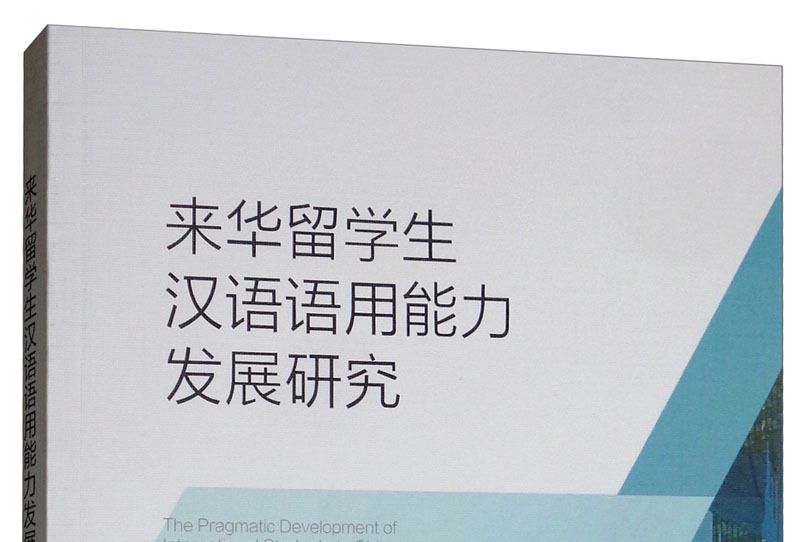《來華留學生漢語語用能力發展研究(英文版)》是2019年5月中國社會科學出版社出版的圖書,作者是應潔瓊。
基本介紹
- 中文名:來華留學生漢語語用能力發展研究(英文版)
- 作者:應潔瓊
- 出版社:中國社會科學出版社
- 出版時間:2019年5月
- 頁數:291 頁
- 定價:89 元
- 開本:16 開
- 裝幀:平裝
- ISBN:9787520343947
- 版次:1

《來華留學生漢語語用能力發展研究(英文版)》是2019年5月中國社會科學出版社出版的圖書,作者是應潔瓊。
《來華留學生漢語語用能力發展研究(英文版)》是2019年5月中國社會科學出版社出版的圖書,作者是應潔瓊。內容簡介 隨著來華留學生人數的不斷增加.對外漢語教學面臨著機遇和挑戰。留學生在中國生活學習期間經常面臨跨文化交流沖...
《第二語言語用能力的發展(英文版)》是2009年11月由上海交通大學出版社出版的圖書,作者是孫曉曦。內容提要 《第二語言語用能力的發展:一項基於母語為漢語的小學生英語語用能力發展的研究》以“交際行為評價表(精簡版)”為框架,在...
伴隨對外漢語教育的快速發展,我國學術界有必要考察來華留學生在語言文化習得過程中遇到的困難,探求促進他們學術及文化適應的方法,研究來華教育對其產生的影響。基於以上認識,本研究匯集社會文化視閾下二語習得研究的理論精華,將語言社會化...
為規範我國來華留學生醫學本科教育管理工作,提高教育教學質量,促進來華留學生教育事業健康發展,我部成立了全國醫學(西醫)專業來華留學生教育專家工作組(以下簡稱專家組),在充分調查研究的基礎上制訂了《來華留學生醫學本科教育(英語授課)質量...
《對外漢語語用教學研究》是董於雯創作的語言學著作,首次出版於2015年12月。該書以語用學理論、第二語言習得理論和語際語語用學理論為基礎,通過系統的分析,描述對外漢語語用教學內容的基本框架,通過設計的調查和語用教學實驗,對...
探究IBDP對軍事留學生漢語預科教育可持續發展的啟示 陳瑜 來華留學生預科教育培養模式的調查與分析——以大連海事大學為例 於夢露 外軍來華留學生漢語入學水平標準調研報告 郭望皓 孟艷麗 來華留學生預科教育研究論文的計量分析 劉弘 作文自動...
2010年 教育部新世紀優秀人才支持計畫項目“二語學習者漢字認知加工和學習研究”2014年 北京語言大學重大基礎專項“基於眼動技術的漢語語塊認知加工和閱讀模式研究”2016年 北京語言大學梧桐創新平台項目“來華留學生漢語認知和習得的行為與腦...
